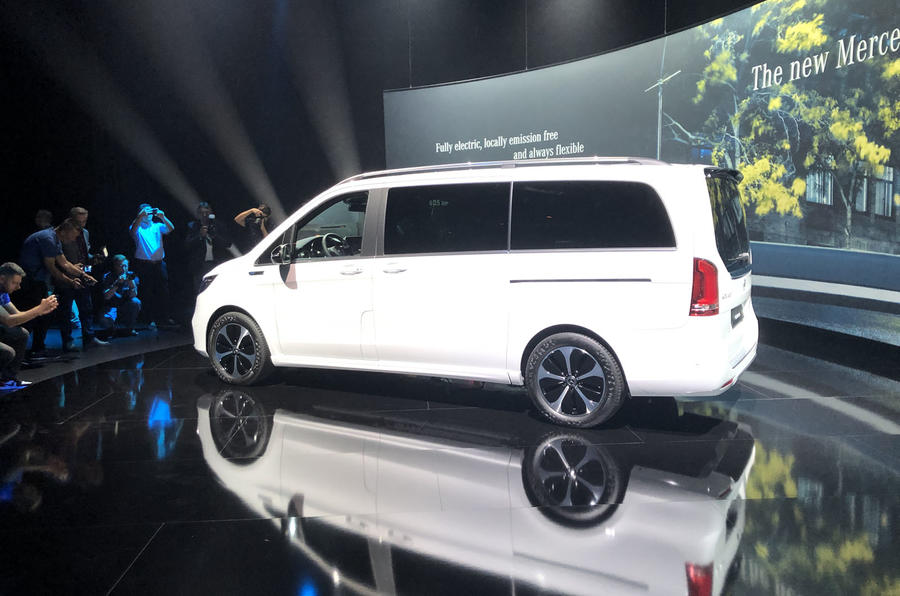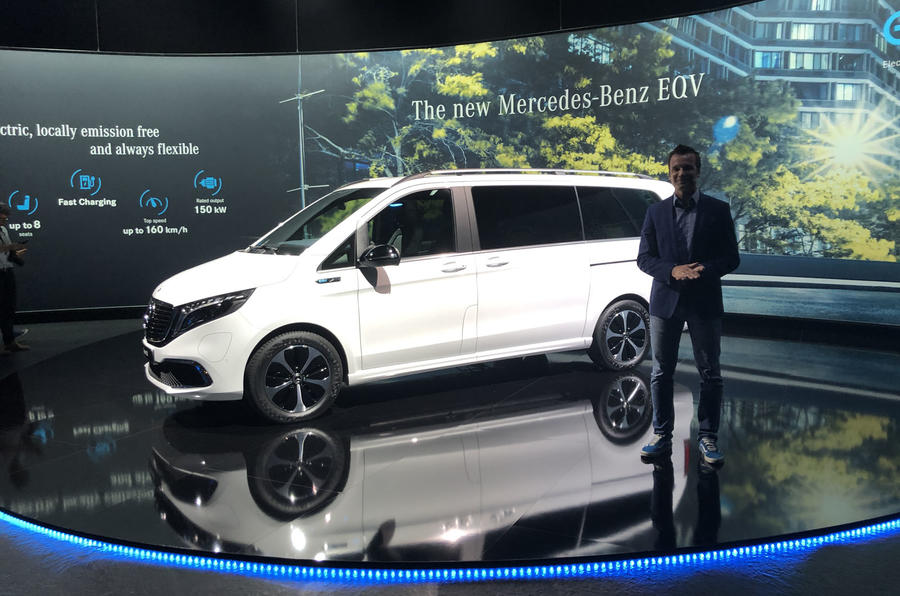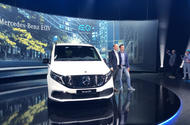Mercedes-Benz Vans boss Marcus Breitschwerd is confident about the future of the commercial vehicle segment
Stuttgart’s new zero-emission people carrier could take more conventionally fuelled cars off the road than any EV yet
We’re just weeks away from the unveiling of Porsche’s Taycan electric super-saloon, Aston Martin’s new Rapide E packs over 600bhp, and even Tesla’s cheapest car can accelerate faster than your average Ferrari.
The electrification era is upon us, and it’s the duty of whisper-quiet luxury cruisers and mind-bendingly quick performance saloons to convince us to abandon conventional fuels.
So you might think that Mercedes’ second electric production passenger vehicle, the EQV, is neither as scene-stealing, nor as important, as some of the cars mentioned above. It is, after all, a van-based MPV, and most likely to be seen ferrying people to or from an airport.
Mercedes-Benz EQV is 252-mile range premium electric MPV
But where electric sports cars will build interest from the masses for zero-emissions transport, it will fall to everyday stalwarts like the new EQV to actually enact a change at ground level. You have only to gaze upon the endless rows of conventionally fuelled V-Class, Sprinter and Vito models parked outside airport departure halls worldwide, to gain a sense of the potential of the EQV.

With a range of 252 miles, flexible seating and quick-charging capabilities, the EQV is a taxi driver’s dream. It’s feasible that the new EV could capably emulate the daily routine of its V-Class forebear; 500 miles in a day sounds reasonable, and lunch breaks would allow enough time to prepare the battery pack for an afternoon’s tour of the M25 (where regenerative braking, as anyone who uses the route will testify, will be used to full effect).
Benjamin Kaehler, head of Mercedes-Benz Vans’ eDrive initiative, says the EQV is ready to take over immediately from its conventionally fuelled counterparts. He said: “The taxi drivers we’ve spoken to do roughly between 250-300km (155-186 miles) per day and some of them do more, but then they have to take a lunch break anyway.
“The ones that are driving electric cars are already saying ‘perfect, I’ll just plan my lunch break, recharge the battery and do another shift’.”

Well-documented shortcomings in EV infrastructure mean that the current V-Class is likely to stick around for a while, but as large fleet operators begin to facilitate mass charging at their out-of-town headquarters, the future of the private hire industry will begin to take shape.
The commercial sector is also becoming increasingly electrified: LEVC’s new range extender LCV van offers 80 miles of electric range for last-mile deliveries, and Mercedes itself delivered 10 new e-Vito electric vans to courier service DPD in May. While such vehicles command a premium over their conventionally fuelled counterparts, the savings from cheaper fill-ups and less emissions-related urban taxes can quickly justify the increased initial outlay for larger firms.
Mercedes van boss Marcus Breitschwerd says the sub-brand is “doing everything to master the challenges of our industry”, and he doesn’t just mean automotive in general. In Germany alone, the delivery sector is now worth £18.2 billion, and growing by the day.
The new EQV will go some way to mitigating the environmental impact of the commercial sector, but new avenues of product development are being pursued elsewhere in order to counteract the negative environmental impact.
The new delivery-focused e-Sprinter, for example, will launch later this year with an 85kW battery and components shared with the e-Vito. Together, the pair will represent a more affordable entry point into the commercial EV segment.
The vast majority of us will never experience the astonishing acceleration of a Lotus Evija or Pininfarina Battista. But we will likely sit in the back of an EQV at some point in the near future – and that’s why it could be one of the most important electric vehicles to launch this year.
Read more
Mercedes-Benz EQV is 252-mile range premium electric MPV
New 2019 Mercedes-Benz V-Class MPV gains more power
Source: Autocar
